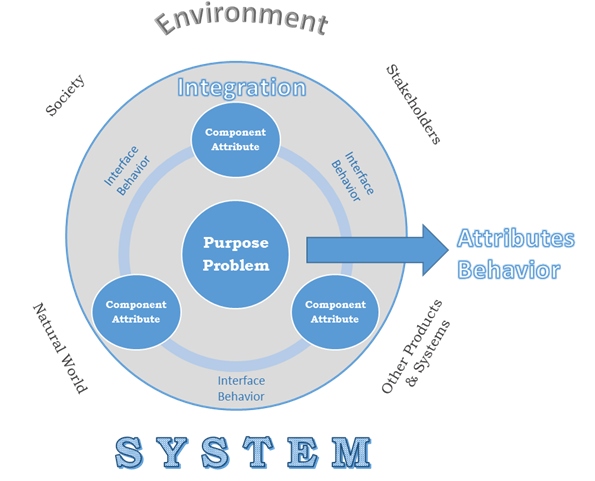Systems Engineering is a field in which complex technical components are designed and integrated in a logical manner to fulfill a purpose and solve a problem.
Systems Engineering is not becoming integral to today's world - it is integral. If you enjoy all your engineering courses, from thermodynamics to circuits to statics, you may have a passion for Systems Engineering and should check it out.
- Dr. L. Dale Thomas, UAH ISEEM professor, and Systems Engineering Eminent Scholar, former NASA engineer.
BS in Industrial and Systems Engineering - Systems Engineering Concentration
Systems Engineering focuses on taking multiple components and integrating them to form a system within a specified environment for a particular purpose - to fulfill a need and solve a problem in a dynamic world by producing products, services, or both. SE requires an iterative, logical, balanced, and multi-disciplinary approach - seeing the "big picture" of engineering. It realizes a successful system by identifying and understanding many aspects of the system, including the following:

- Purpose or problem the system is to address
- Technical components of the system
- Attributes of the system
- Integration and testing of all parts of the system
- Behavior of components and the system
- including emergent behavior
- Interfaces within the system
- Environment which could influence the system
- Life cycle of the system
Systems Engineering seeks to destroy the idea that engineering is a continual cycle of "try and fix" by focusing on the purpose of the system and understanding how it should and will work and how to create it before actually building it. SE requires the application of knowledge in many subjective areas with no definite "rules" - combining knowledge from engineering, humanities, and the culture in general. Systems Engineers must see the system as a whole, fulfilling the mission and the desire of the customer within the project team. Systems Engineering is intriguing because of the challenge of integrating the purpose, customer, technical requirements, design, components, interactions, schedule, and so on.
Students pursuing a Bachelor of Science in Industrial and Systems Engineering with a Systems Engineering concentration learn to apply the thought processes and skills described above in their professional careers after completion of this program.
Huntsville is a Systems Engineering city, maybe the most important Systems Engineering city in the U.S. There is nowhere that is more suited to a Systems Engineering career than here.
- Dr. Paul Collopy, UAH ISEEM professor, former ISEEM department chair.
Below is a student guide written by Hannah Smith, an ISEEM Alum, describing Systems Engineering to prospective and current undergraduate students.
Integrated - A Students Guide to Systems Engineering
The following link will provide a guide or class checksheet for the Systems Engineering Concentration.
Systems Engineering Concentration Class Check Sheet
